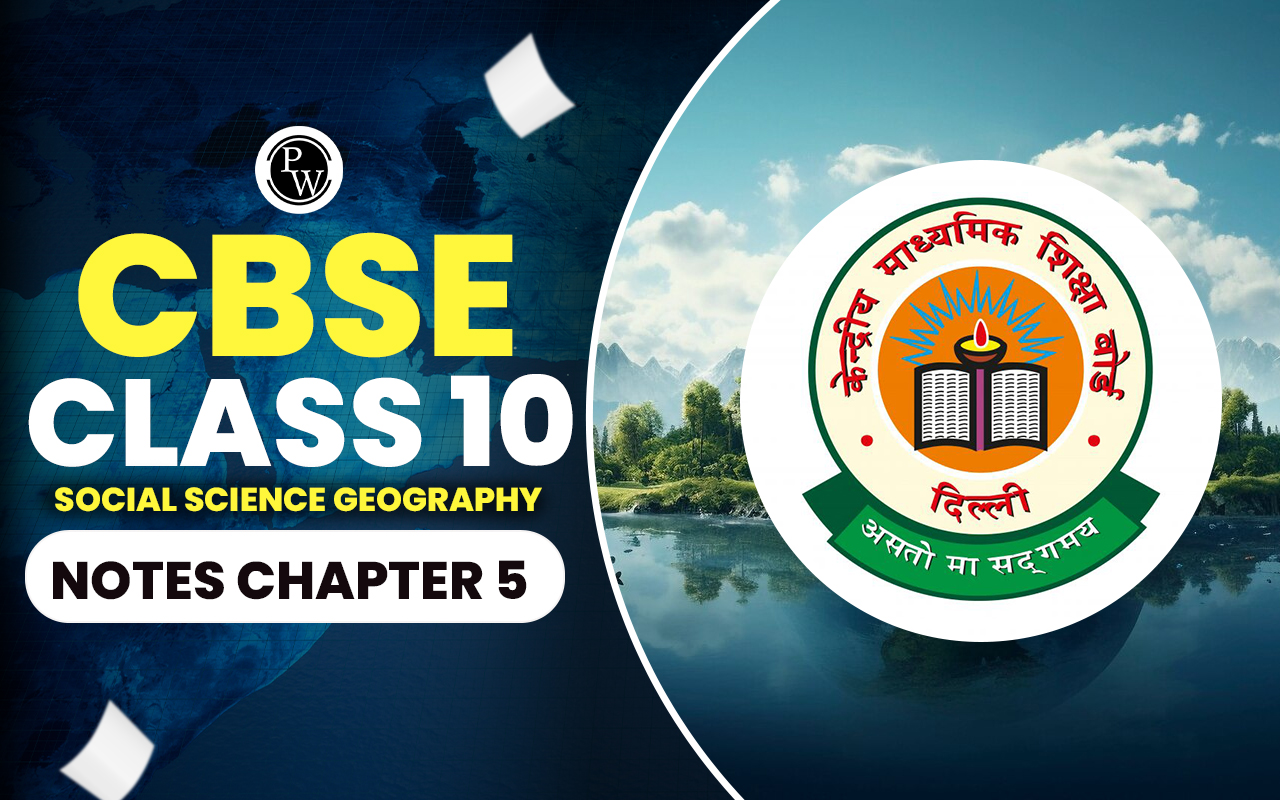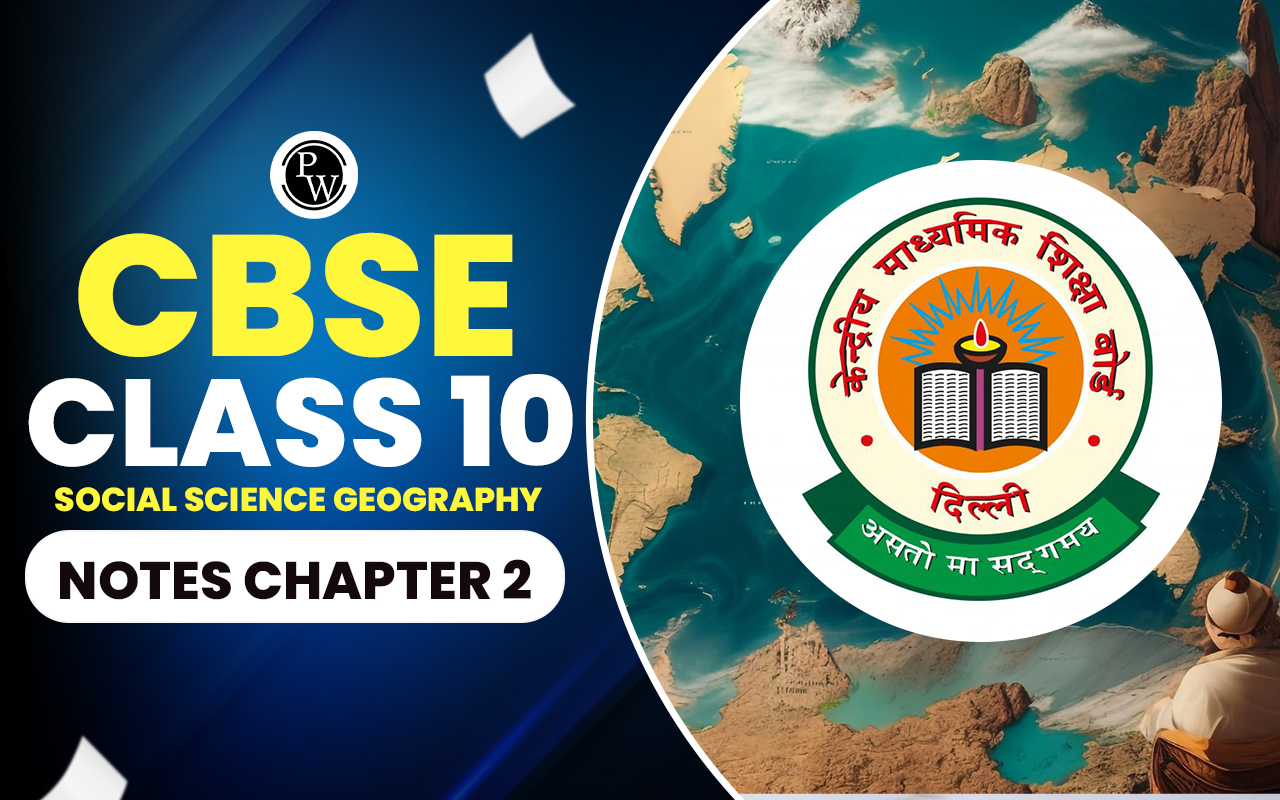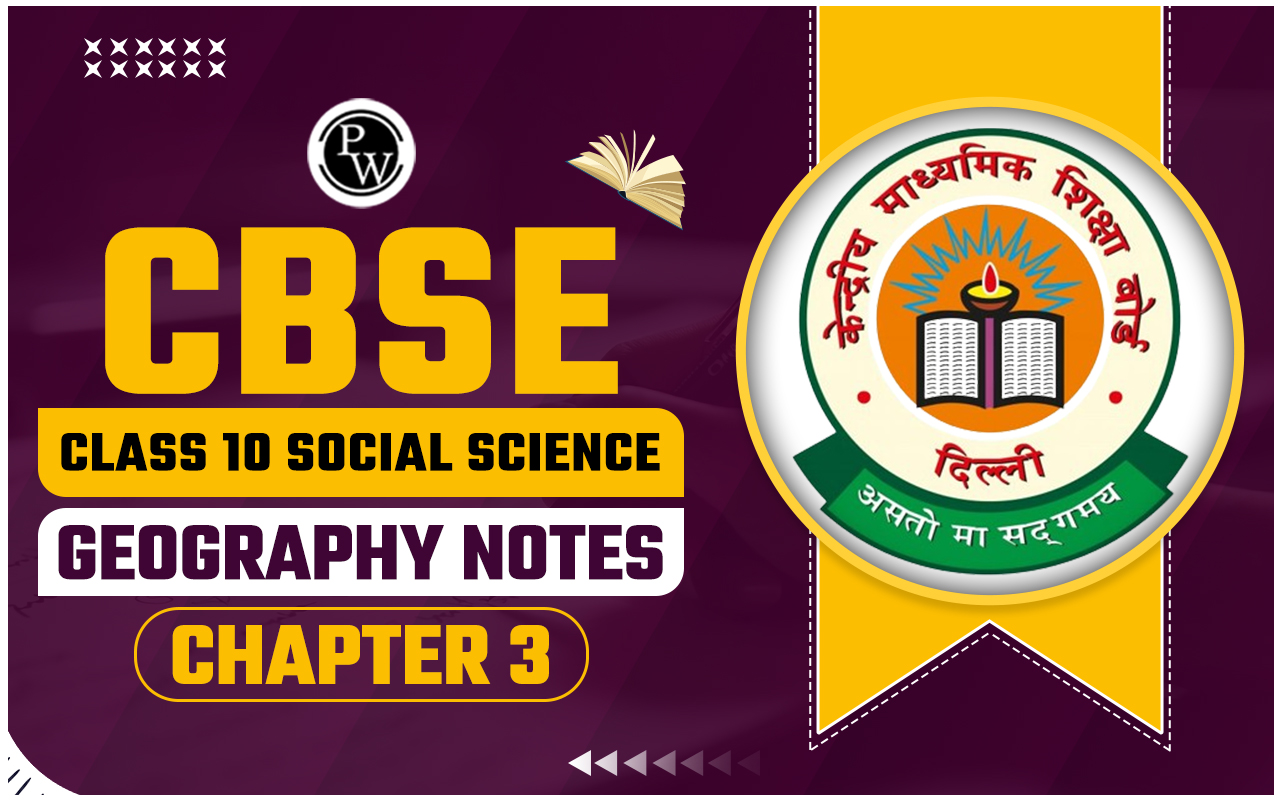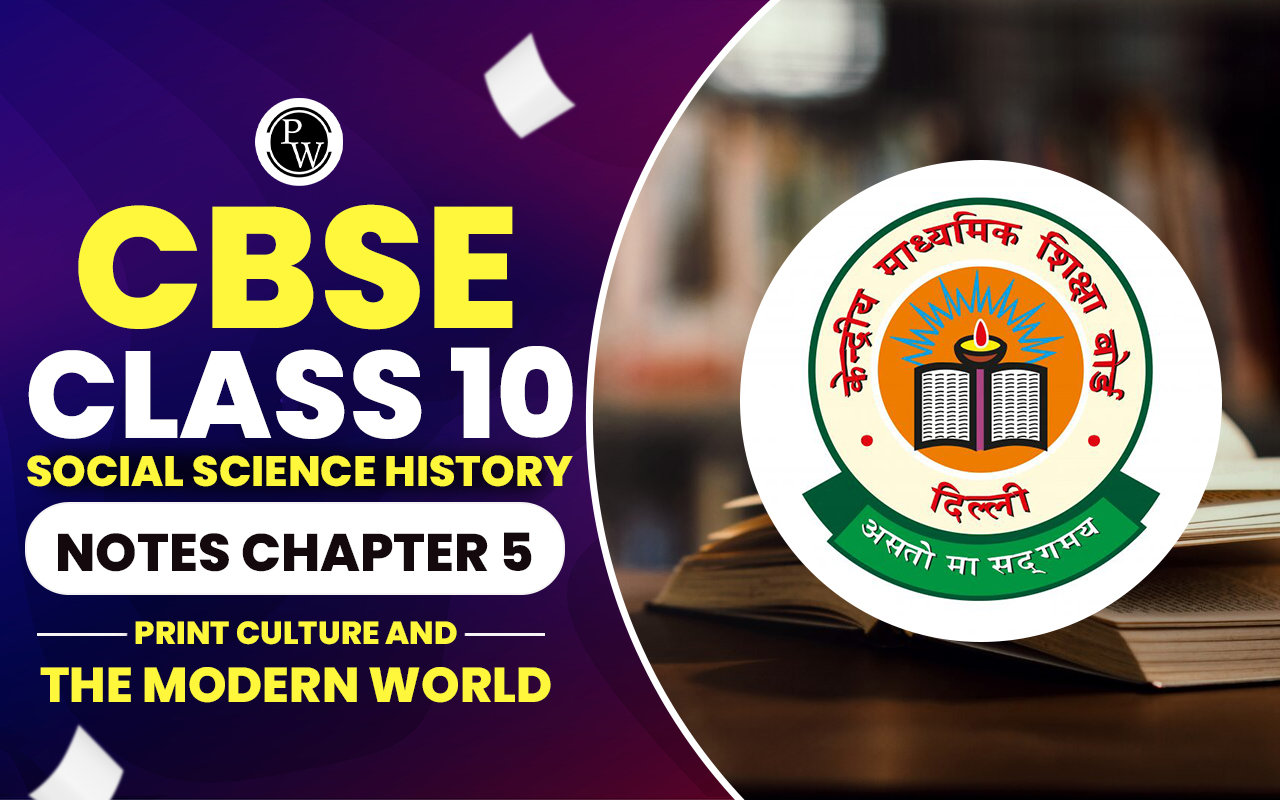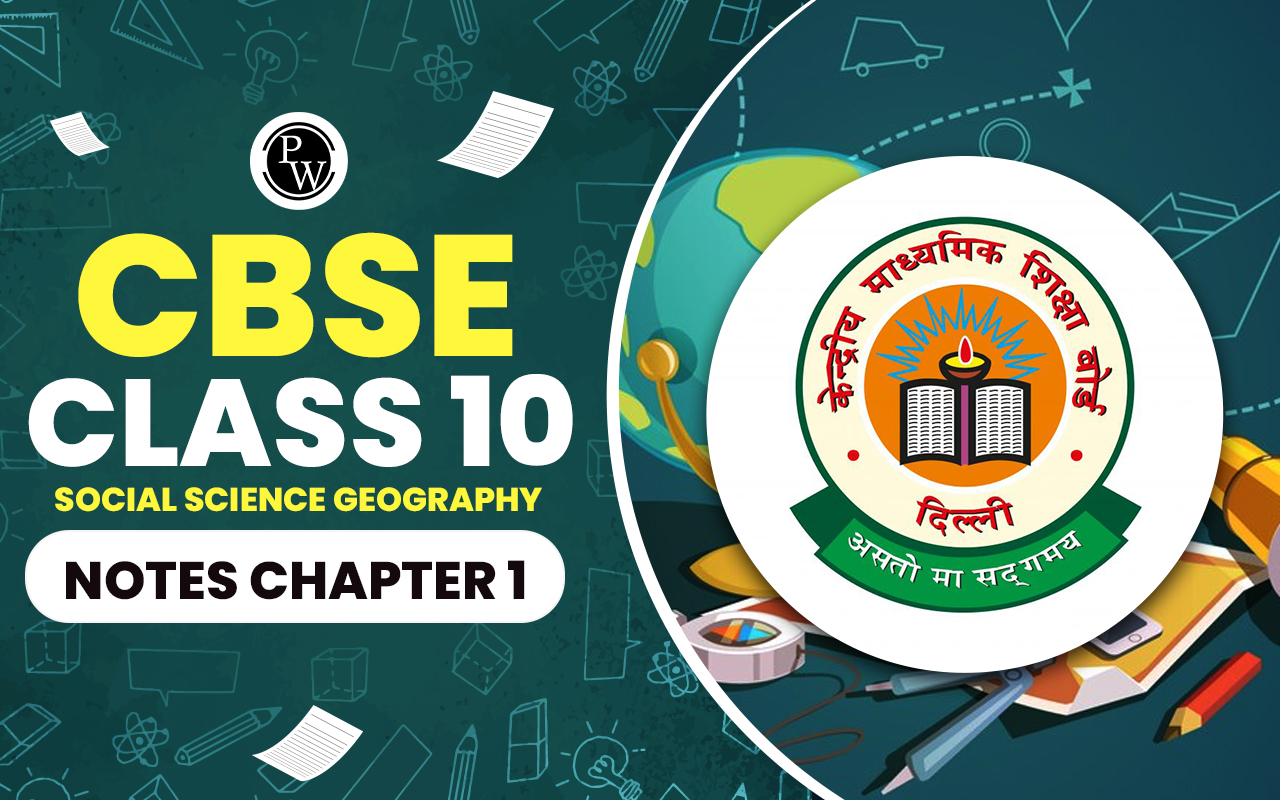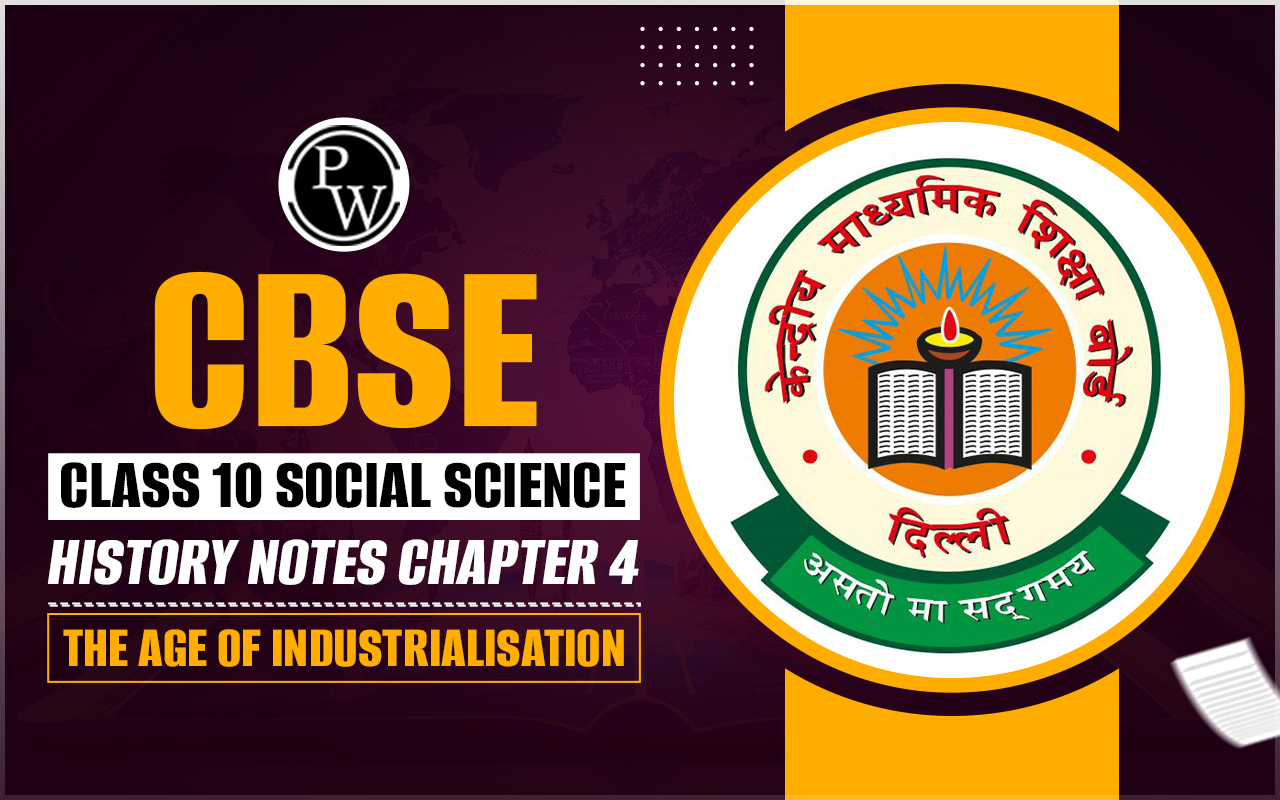
CBSE Class 10 Social Science Economics Notes Chapter 1: In CBSE Class 10 Social Science Economics Chapter 1, titled "Development," students learn about the concept of development and its significance. They know about various aspects of development, such as economic growth, social progress, and the improvement of living standards.
The chapter aims to provide students with a foundational understanding of development and its implications for individuals and societies. Through studying this chapter students gain insights into the factors influencing development and the challenges associated with achieving sustainable development goals.Topics Covered in the CBSE Class 10 Social Science Economics Notes Chapter 1 Overview
The CBSE Class 10 Social Science Economics Notes Chapter 1 covers various topics related to development.Understanding Development: Students learn about the concept of development and its different dimensions, including economic, social, and environmental aspects.
Sustainable Development: The chapter discusses the importance of sustainable development and how it aims to meet the needs of the present without compromising the ability of future generations to meet their own needs.
CBSE Class 10 Social Science Economics Notes
Economic Development: Students explore the role of economic development in improving the standard of living and reducing poverty levels in society.
Human Development: The chapter emphasizes the significance of human development, focusing on aspects such as education, healthcare, and gender equality.
National Development: Students learn about the factors that contribute to national development, including infrastructure development, industrialization, and technological advancement.
| CBSE Class 10 Economics Notes |
| Chapter 1: Development |
| Chapter 2: Sectors of the Indian Economy |
| Chapter 3: Money and Credit |
| Chapter 4: Globalisation and the Indian Economy |
| Chapter 5: Consumer Rights |
CBSE Class 10 Social Science Economics Notes Chapter 1 Development PDF
You can access the CBSE Class 10 Social Science History Notes for Chapter 1 in PDF format through the following link:CBSE Class 10 Social Science Economics Notes Chapter 1 PDF
CBSE Notes Class 10 Economics Chapter 1 -Development
What Development Promises – Different Peoples, Different Goals:
- Developmental goals vary from person to person.
- It's not just about personal growth but also about a country's progress.
- Development includes economic growth and meeting basic needs like education and healthcare.
- The aim is to adapt to the changing times.
- For instance, building a dam for electricity generation may benefit society but harm farmers and local residents.
National Development
National development refers to the overall progress and improvement of a country in various aspects, including economic, social, and political domains. It encompasses the enhancement of living standards, infrastructure, and institutional capacity, among other factors. Here are key aspects of national development:Economic Growth : National development involves sustained economic growth, which leads to increased production, income generation, and employment opportunities. It aims to achieve a stable and prosperous economy that benefits all citizens.
Social Welfare : National development prioritizes the well-being of citizens by ensuring access to essential services such as education, healthcare, housing, and social security. It aims to reduce poverty, inequality, and social exclusion.
Infrastructure Development : Adequate infrastructure, including transportation, communication, energy, and water supply, is vital for national development. Improved infrastructure facilitates economic activities, enhances productivity, and improves the quality of life.
Human Capital Development : National development focuses on investing in human capital through education, skill development, and healthcare. A well-educated and healthy workforce is essential for sustainable development and economic competitiveness.
Environmental Sustainability : Sustainable development emphasizes the responsible use of natural resources and environmental conservation. National development strategies should incorporate measures to mitigate environmental degradation, promote renewable energy, and address climate change challenges.
Political Stability and Good Governance : Political stability, rule of law, and effective governance are essential for national development. Transparent and accountable institutions, as well as participatory decision-making processes, contribute to fostering trust, stability, and sustainable development.
International Cooperation : National development often involves collaboration with international partners, organizations, and donors. International cooperation can provide financial assistance, technical expertise, and knowledge sharing to support national development efforts.
Comparing Different Countries or States
- Comparing countries based solely on total income can be misleading due to differences in population.
- Per capita income, which is the average income per person, is a more accurate measure for comparison.
- World Development Reports often use per capita income to classify countries into different categories based on their level of development.
Income and Other Criteria
- Besides income, access to public facilities like healthcare, education, infrastructure, and sanitation is crucial for assessing development.
- These public facilities contribute significantly to the overall well-being and quality of life of citizens.
Sustainability of Development
Sustainability of development refers to the ability to meet the needs of the present without compromising the ability of future generations to meet their own needs. It involves balancing economic, social, and environmental considerations to ensure long-term well-being and prosperity. Here are key aspects of sustainability in development:Environmental Conservation : Sustainable development prioritizes the protection and conservation of natural resources, biodiversity, and ecosystems. It aims to minimize pollution, reduce carbon emissions, and promote sustainable land use practices to preserve the environment for future generations.
Economic Stability : Sustainability requires a stable and resilient economy that can withstand shocks and fluctuations. It involves promoting inclusive economic growth, reducing income inequality, and ensuring access to livelihood opportunities for all segments of society.
Social Equity : Sustainable development aims to address social inequalities and promote social inclusion and justice. It involves ensuring access to basic services such as education, healthcare, housing, and social protection for all individuals, regardless of their background or socio-economic status.
Cultural Preservation : Sustainability includes the preservation and promotion of cultural heritage, traditions, and identities. It recognizes the importance of cultural diversity and encourages respect for indigenous knowledge and practices.
Community Participation : Sustainable development emphasizes the importance of participatory decision-making processes and community engagement. It involves empowering local communities to participate in the planning, implementation, and evaluation of development projects that affect their lives.
Responsible Consumption and Production : Sustainability entails promoting responsible consumption and production patterns. It involves reducing waste, recycling resources, and adopting sustainable practices in industries, agriculture, and consumption habits to minimize environmental impact.
Climate Action : Sustainable development addresses climate change challenges by promoting renewable energy sources, energy efficiency, and climate-resilient infrastructure. It involves adapting to climate change impacts and mitigating greenhouse gas emissions to limit global warming and its adverse effects.
Global Partnerships : Sustainability requires international cooperation and partnerships to address global challenges such as climate change, poverty, and inequality. It involves collaboration among governments, businesses, civil society organizations, and international agencies to achieve common goals and targets.
Conclusion
- Development is a multifaceted concept encompassing economic, social, and environmental dimensions.
- Achieving sustainable development requires a holistic approach that balances economic growth with social equity and environmental stewardship.
Related Links
CBSE Class 10 Social Science Economics Notes Chapter 1 Development FAQs
What is sustainable development?
Why is it important to consider non-material aspects of development?
How does development impact the environment?
What are the challenges to sustainable development?



